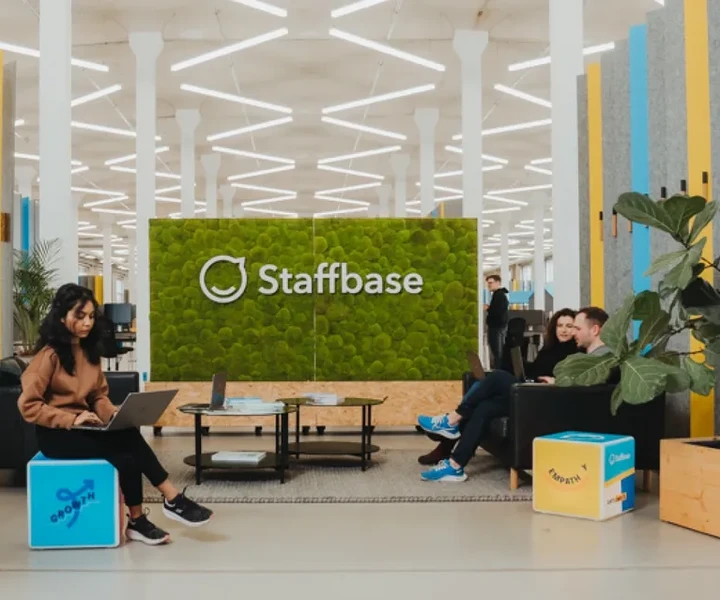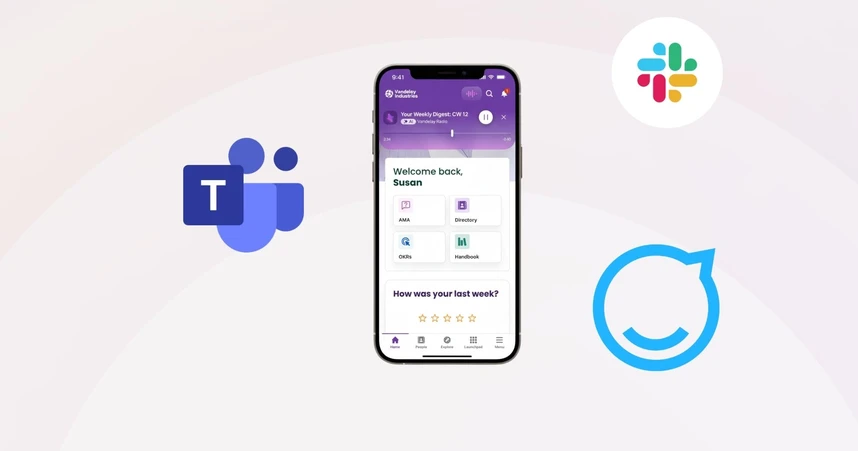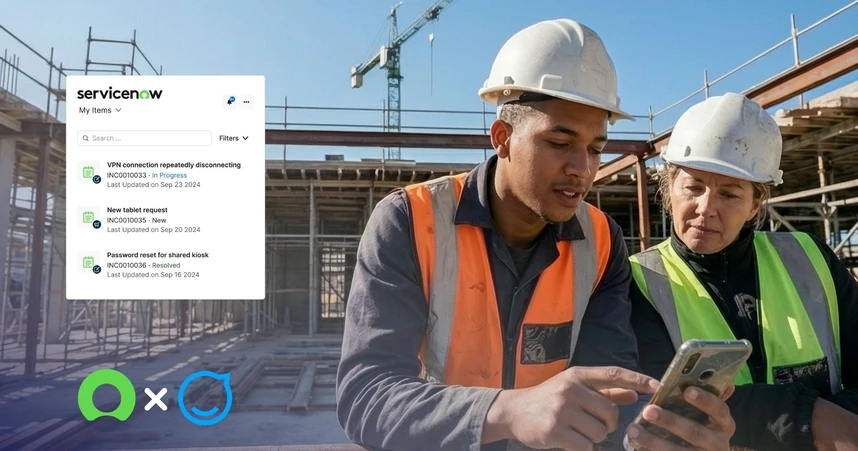10 Ways to Start a Standout Podcast (With Help From the Experts)
In 2024, many podcasters are competing for their voices to be heard online. Infernal Communication season 2 podcast hosts Lottie and Brian help weigh in with ways to get started on your podcast and make it stand out.
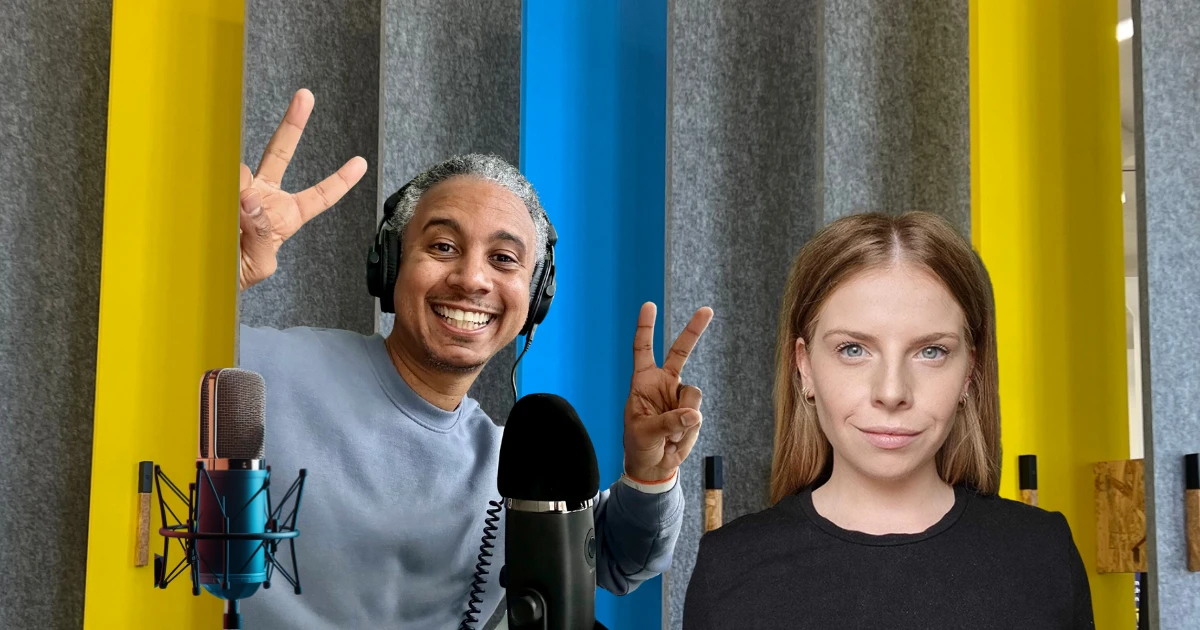
Storytelling is an ancient art greatly celebrated in current times, as demonstrated by what feels like an explosion of podcasts that fight for our attention daily. In fact, The Social Shepherd estimates there are currently over 4.25 million podcasts registered worldwide as of January 2024. What does this mean for storytelling? Well, the joy of narrative remains very much alive in the modern world, though how we engage with stories has changed.
Starting a podcast is now a popular way to connect with an audience in a fast-paced world, as it represents a shift in the way we consume and engage with stories in the digital age. With so many podcasts already in existence, initiating your own company or personal podcast may initially appear overwhelming. However, Infernal Communication podcast hosts Brian Tomlinson and Lottie Bazley are here to help weigh in with expert tips on how to make a standout podcast in 2024.
How Podcasts Differ From Other Modern Media
Before we discover how to make your podcast stand out, let’s pause for a moment. Why podcasting? After all, there are now plenty of options such as blogs, vlogs, short clips, and graphics that tell a compelling story online for individuals, groups, and companies. Yet, podcasting has only continued to rise in popularity despite so many other options for spending our time in the digital world. Naturally, there must be something special about podcasts that causes so many people to gravitate towards this form of storytelling consumption.
Podcasting seems to be the modern person’s answer to how to devour stories and expand knowledge when faced with a hectic life. Unlike other forms of digital media, podcasts offer an exclusive blend of accessibility, convenience, and closeness that make them a uniquely attractive option for busy consumers. And it seems like people just can’t get enough of accessible audio storytelling. Beyond Words estimates that the demand for spoken-word audio has increased from 40% from 2014 to 2021.
Thanks to this demand, many creatives have set to work crafting a compelling podcast of their own as both personal hobbies and company marketing strategies.
Podcasting offers both unparalleled accessibility and easy consumption, making it a particularly popular form of media. Many listeners feel intimately acquainted with their favorite podcasters because they hear their voices for hours, often from tiny headphones in a personal setting that fosters closeness. Devoid of visuals, podcasters speak directly to their audience and create a bond with their listeners. These are important insights to keep in mind when considering how to start a podcast.
What is the Infernal Communication podcast?
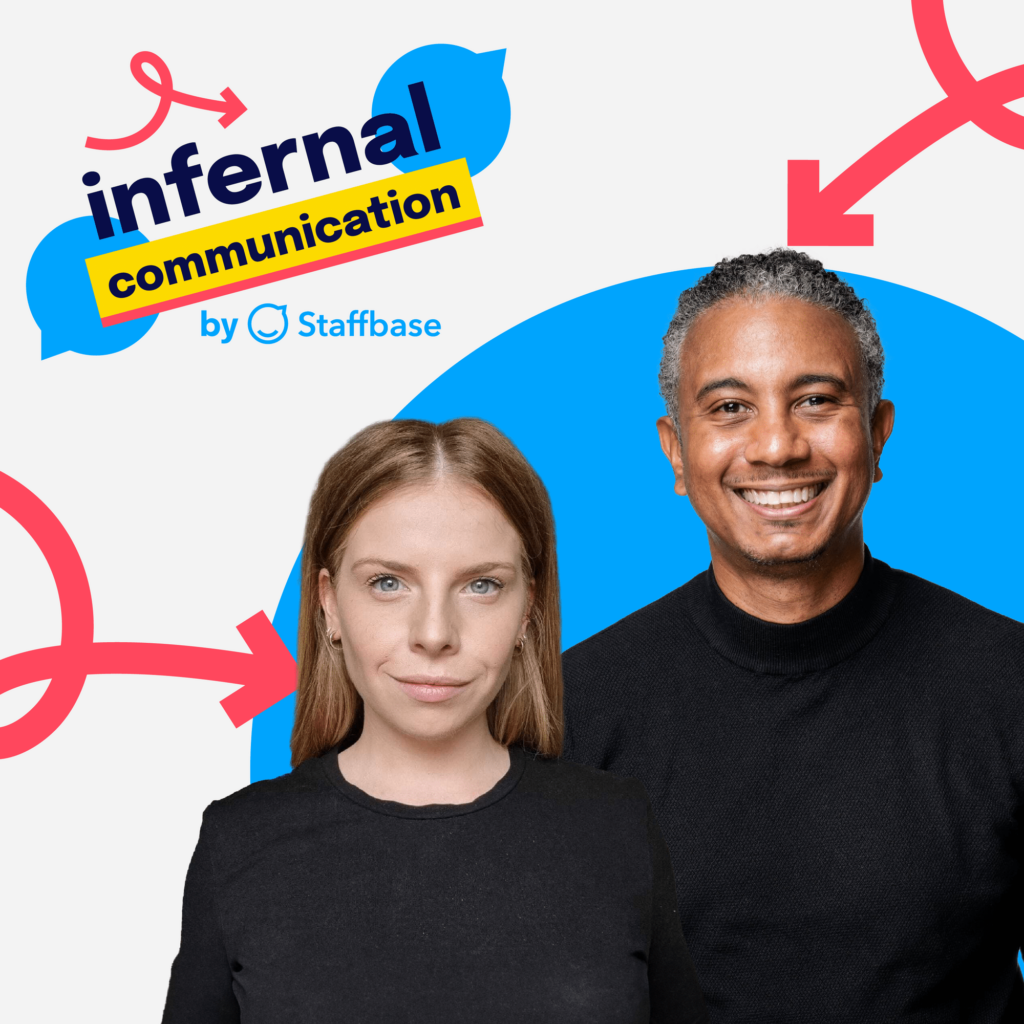
The beauty of podcasting is that it offers a sea of topics to a wide range of people. The Infernal Communication podcast just launched its second season at Staffbase and invites listeners to embark on a journey into the intricate world of communication. Seasoned communications professionals join skilled podcasters Brian and Lottie to explore the triumphs and challenges inherent to modern communication — whether that be in the workplace or a more personal setting.
As communications experts themselves, Brian and Lottie have picked up numerous tips and tricks on how to construct a standout podcast while taking over as the Infernal Communication season 2 hosts. So without further ado, here are ten tips with insight from Brian and Lottie that can hopefully guide any newcomers when it comes to starting a standout podcast and distinguishing their voice from the crowd.
Tips for Making Your Podcast Stand Out in 2024
1. Pick Your Podcast Format
The first tip might seem straightforward, but it is of vital importance. When considering how to start a podcast, don’t just think about what you want to say. It’s necessary to also decide how you want to deliver the message. Viewers develop relationships with their favorite podcast hosts and come to expect the familiar comfort of a format. Decide how the podcast will be structured ahead of time to build familiarity and consistency.
Before hitting record, outline your format. Podcasts offer diverse formats like interviews, panels, comedy, or more traditional solo storytelling. Some feature multiple hosts with distinct roles, such as comedic relief or devil’s advocate. In Infernal Communication season 2, hosts Brian and Lottie switch roles as interviewers, adding dramatic elements to their storytelling with sound effects and voiceovers.
What the experts say:
I think the format of the Infernal Communication podcast is unique. It’s something that was deliberately chosen to be unique to be able to differentiate from all of the other communications podcasts that were out there already. While it is an interview format, it has this real kind of cinematic storytelling kind of twist to it.
Infernal Communication season 2 host Brian Tomlinson on choosing a podcast format
2. Be Authentic When Podcasting
While it’s one thing to add some humor or lean into an area of your personality for podcasting, audiences respond best to authenticity. Therefore, your conversation and persona should not be forced. The good news is that you don’t have to desperately search for the right slang or try to keep up with a different crowd. You truly can be yourself! If you have strong and interesting content, your audience will appreciate your authentic delivery instead of a try-hard podcast persona.
The podcasts that stand out the most don’t artificially go over the top. Many listeners appreciate the intimacy of getting to know a podcaster on what feels like a personal and grounded level. Feel free to connect with listeners through personal anecdotes and experiences. Remember that trust is built on authentic delivery as opposed to a contrived identity, though it is perfectly fine to play up some existing aspects of yourself for the recording.
What the experts say:
It [podcasting] is a completely different experience from anything that I’ve done before, and I think it’s very different when you’re doing a webinar versus a podcast. For me, it felt more like acting. I kind of think it’s my personality and it’s me, but maybe just turned up a couple of notches on the dial.
Infernal Communication season 2 host Lottie Bazley on her podcasting persona
For both of us, it was something really new, especially that different style. There is this element of how you use your voice. That was something that was, I think, completely new and completely different as well. So I think I told our folks at JAR Audio, who produced the show, that If I were to do it again, I would record the very last episode first — just because you can tell later down in the episodes that we’re much more comfortable.
Infernal Communication season 2 host Brian Tomlinson on getting started with podcasting
3. Select Compelling Podcast Content
While many aspects come together to create a standout podcast, content is undeniably a major contributing factor to success. What are you trying to say as a podcaster? What information do you want to impart to listeners? What stories are you telling? Multiple minds can come together to help create the end product. For companies wishing to start their own podcast, consider organizing writing, production, and social media teams.
When crafting content, always keep your target audience in mind. Is what you are saying in line with your brand, or are you risking alienating your following? Some podcasts ramble more than others, as they are structured around casual conversations and friendly banter. However, successful podcasts are planned ahead of time so that compelling content can be mapped out. At a bare minimum, have a list of valuable and engaging topics to keep the conversation flowing.
What the experts say:
I think a lot of that [content planning] sits with having this amazing production team at JAR Audio with amazing writers … they are thinking through this episode before they even really speak to the guests, and then we’re kind of building the story around how that interview goes with the guests.
Infernal Communication season 2 host Brian Tomlinson on content planning
It’s that vision that JAR has about what the story of this episode is. And then based on what the interviewees say and then how mine and Brian’s parts are scripted. And then on top of that is the sound effects, and the audio, and all of that extra stuff. So they obviously have this incredible vision of the story that we want this episode to tell, which I think is very relevant and apt — especially considering that this is a podcast about storytelling.
Infernal Communication season 2 host Lottie Bazley on content planning
4. Pick the Right Podcast Guests
Many podcasts rely on guests to add another dimension to storytelling. Some guests make repeat appearances, while other podcasts plan a mix of solo episodes and guest specials. When selecting a guest for your podcast, it’s again necessary to keep your audience and brand in mind. Invite people to your platform who have interesting, knowledgeable, and relevant insights and perspectives.
Draft a list of your ideal guests and connect on communications platforms such as e-mail, social media, or LinkedIn depending on the nature of your podcast. Don’t be discouraged by rejections or ignored messages. You might want to start local and recruit family, friends, or coworkers who have a relevant story to tell on your podcast before branching out to other guests.
What the experts say:
I think it’s experiences. So what experiences this person has had, how they handle these experiences, … what are their life experiences, and how that ties into the theme for the episode.
Infernal Communication season 2 host Brian Tomlinson on what makes a good podcast guest
I think that the thing is that we have some people who are experts within their field. I just listened to [“How to stop your CEO from saying stupid sh*t“]. Like Julian [Treasure], he knows his stuff. He’s an expert in communicating and that specific area, but then if you think about “The art of coming back from embarrassment,” where we have a guy who just had an embarrassing thing happen to someone in his business. He’s not necessarily a communications expert — he’s just an interesting guy. An interesting thing happened to him in his business, and he learned stuff from it, and he’s happy to share that story with us. So I think it’s really nice to have a mix.
Infernal Communication season 2 host Lottie Bazley on selecting Infernal Communication guests
5. Be Consistent With Producing Your Work
Consistency is the key to making a standout podcast. One way to keep your audience engaged and coming back for more is to stick to a regular release schedule. That means that before you first launch a new podcast, several episodes might already be finished ahead of time to avoid inconsistent releases. However, other podcasts might be structured around conversations that occur shortly before a new episode airs.
Consistency can also be aided through branding. Loyal and engaged audiences will return each week to see what the podcast has in store once they come to rely on the release and quality of the content. Develop and maintain identity through artwork, name, and voice. Establish your podcast as something that viewers can turn to for steady content in a specific field of interest.
What the experts say:
It’s even down to Brian and I had a conversation when we knew what the episodes were going to be about that. We had a conversation about, ‘do you want this to be a Brian episode or a Lottie episode’ based on kind of our interest and the things that we wanted to talk about. We planned even who would do each episode, and all the recordings were done in advance.
Infernal Communication season 2 host Lottie Bazley on podcast co-host communication
6. Understand Your Audience
Podcasts that want to stand out from the crowd in 2024 need to know their audience. To form a meaningful connection, it’s first necessary to understand the people you are speaking to. Exploring key areas such as demographics provides insight into the people who are routinely listening in. There are many available analytical tools online that provide information about age, gender, and location.
Podcasting success is shaped largely by the community. Once you know who you are speaking to, it’s easier to form a message and foster outreach. For example, podcasters catering to a younger demographic might advertise on TikTok, while podcasters with an older audience might dial back on their pop culture references. Meanwhile, business-oriented podcasts can promote content on LinkedIn. Polls and surveys are easy ways to gather information about your demographics and reach out to listeners.
What the experts say:
I think for Infernal Communication, the audience was always really communicators … at whatever level that may be. It was very much a brand awareness type play where you’re focusing on kind of getting that general audience as well. And that’s something that we did for season two as well just in terms of our paid media approach and how to promote the podcast. It was very much a more general audience approach so that we could get a broader reach.
Infernal Communication season 2 host Brian Tomlinson on defining the Infernal Communication audience
7. Deliver Compelling Podcast Intros
Attention spans are dwindling and wandering in 2024, with publications such as TIME Magazine citing a decreasing attention span as a relevant concern for many people. That means that standout podcasts need to hook their viewers before they have the chance to switch their focus to something else. A strong hook not only captures the interest of the viewer, but it sets the tone for the podcast episode.
Strong hooks pique interest and stir intrigue. Podcast hooks should be brief statements that make viewers curious to continue listening. The hook should touch upon the theme of the episode and hint at what is to come in the following minutes. Creating vivid imagery, leveraging suspense, and sharing anecdotes are all ways to help engage audiences from the start. Meanwhile, a captivating hook is one area of podcasting that requires attention to written text including the title and episode description.
What the experts say:
The thing to hook them is just coming from a copywriting perspective. I think the hook is everything about the title of the podcast, because people don’t go listen to 30 seconds of the podcast and say, ‘okay, I’m gonna listen to this.’ They first read and see what the title is and what the description is and if that’s something that’s interesting … So I think that writing in many ways is more important than what comes on and the audio in terms of pulling people in.
Infernal Communication season 2 host Brian Tomlinson on creating an effective podcast hook
8. Invest in Quality Podcasting Equipment
If you’re serious about making a quality podcast, it would be wise to invest in the right equipment. However, this financial investment doesn’t have to hurt your wallet too hard when you’re just getting started on podcasting. Reasonable-quality equipment and editing software ensure cleaner audio quality which in turn will increase the listening experience of the viewer. Nothing can break the immersive experience of listening to your favorite podcast quite like uneven audio and pesky playback.
Background noise and sound distortion will take away from the listening experience and can hurt the odds of your podcast building a following. In contrast, production value rises exponentially with quality sound from professional microphones. While podcasters might want to convey a friendly and conversational tone to their audience, they should not forget the importance of professionalism.
What the experts say:
Get a mic. I think whether you’re doing a podcast just audio only or if you’re doing video, the audio will always be the most important thing. Even if you’re doing a video also, having really clear audio is the most critical thing. … Don’t go get a super cheap mic, but you don’t need to spend a ton of money.
Infernal Communication season 2 host Brian Tomlinson on how to produce quality podcast audio
Pro Tip: Brian and Lottie coordinated with more reasonably priced Yeti X microphones, though they hear that the high-quality albeit pricier Shure microphones are quite buzzed about for podcasting professionals. Meanwhile, they made sure to have the same microphones for matching audio quality.
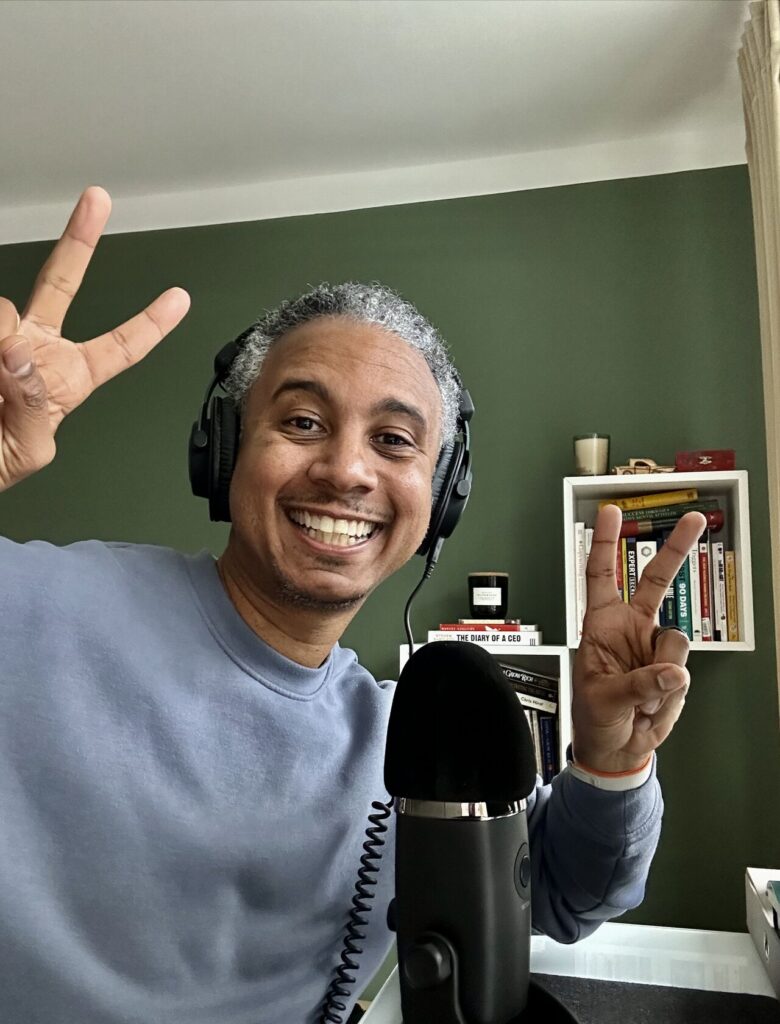 Brian with his Yeti X microphone to record Infernal Communication season 2
Brian with his Yeti X microphone to record Infernal Communication season 2
9. Keep Your Audience Engaged
Now, we’ve already mentioned the importance of understanding your audience and hooking them from the start. However, it’s also vital to keep the audience engaged throughout the podcast so that they will want to listen to future episodes as well. Switch things up with some interactive elements, such as Q&A sessions or added sound elements, that can help retain audience attention and engagement.
Additionally, various storytelling techniques can be used to make the podcast more memorable. As explored in the Infernal Communication podcast, simply sharing information within the structure of a story can make it 22 times more memorable than revealing the information on its own. Additionally, engagement can be achieved through building a community. Keep listeners interested in your podcast through social media, forums, and live events.
What the experts say:
I think there are certain types of podcasts that you don’t just listen to for the subject matter. I will still listen to my favorite podcasts regardless of who the guest is, because I like the format, or I might listen to certain podcasts just because that comedian I like is on there, but I won’t necessarily listen to that podcast series. … people might be coming for the story, or the person, or the topic.
Infernal Communication season 2 host Lottie Bazley on podcast engagement
10. Be Adaptable
To remain successful, be adaptable. Successful podcasters must be open to evolving their podcast format, content, and strategies based on audience preferences and industry trends. Podcasters should stay up-to-date with current events and trending topics relevant to their niche. This will help keep content fresh and relevant. Podcasters should also consider audience feedback. Listen to what others have to say and allow constructive criticism and continual learning to help your platform evolve.
Adaptability might also involve responding to changes within the podcast, such as Infernal Communication bringing Lottie and Brian on for season 2 after season 1 host Kyla Sims professionally parted ways with Staffbase. Always keep the future success of your podcast in mind and ensure that your format is sustainable for upcoming seasons. Overall, learn how to evolve with change.
What the experts say:
We had the challenge with Kyla leaving us after season one. … It’s just the reality of life, so I think that was one thing that we discussed. We wanted to have definitely more of a multi-host format so that we would have that flexibility later down to be able to decide what would fit best.
Infernal Communication season 2 host Brian Tomlinson on adapting to podcasting challenges as a company
Check out Infernal Communication for Podcast Inspiration!
Are you a fan of what Brian and Lottie have to say about podcasting? Then just wait until you hear them on their own podcast! From exploring the history of oral cultures to learning how to outsmart algorithms, each episode of Infernal Communication delves into different aspects of the communications landscape with fresh perspectives and thought-provoking insights.
Infernal Communication season 2 can be listened to on Apple, Spotify, or wherever you enjoy your favorite podcasts.





